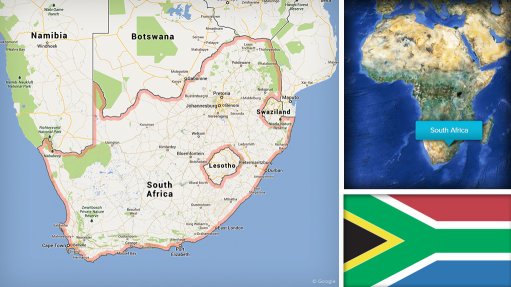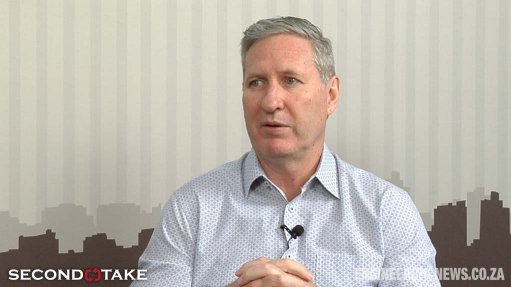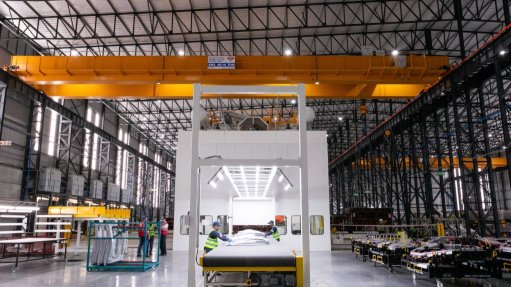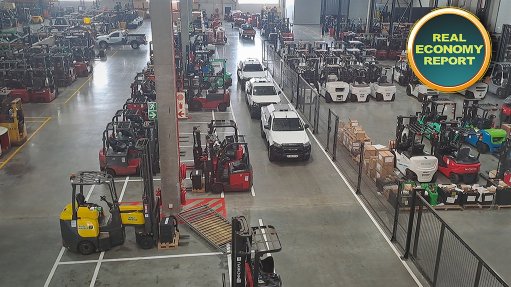Over-taxation in automotive market will undermine BEV adoption in South Africa
South Africa’s automative market is going to struggle to transition to battery electric vehicles (BEVs), specifically because of the country’s “peculiar” automotive market structure, which Toyota Wessels Institute for Manufacturing Studies manufacturing ambassador Professor Justin Barnes has said needs to be corrected.
“We actually have a huge problem in South Africa in relation to how our market functions,” he said during a webinar hosted by Creamer Media on July 17, where various automotive industry experts discussed the current state and future prospects of the country's automotive industry.
Aside from Barnes, the virtual event, titled 'SA's Automotive Industry 2024: Navigating Global and Domestic Risks While Embracing New Opportunities', featured notable speakers such as National Association of Automotive Component and Allied Manufacturers policy and regulatory affairs head Beth Dealtry and Metair Investments CEO Paul O’Flaherty. The discussion was moderated by EY partner Duane Newman.
Barnes said the significant issues within the South African vehicle consumption market tied back to the tax regime, which was causing the trend of consumers buying down from mid-market vehicles to entry-point models.
"South African vehicle consumption is in distress. The challenge that we have in South Africa in relation to new energy vehicles is amplified by our market structure and the way in which our market is taxed by the National Treasury,” he said.
He said the downward buying trend shift could be attributed to excessive taxation on vehicles, which had not been optimised for maximum tax revenue.
“Our automotive policy is actually schizophrenic. Everybody talks about the support the automotive industry gets, but the industry is actually excessively taxed in the market. So, although we have a very supportive production incentive, we actually have a very poorly constituted market. This is a market that is excessively taxed. The ad valorem tax structure has not been adjusted since 1995.
"Essentially, even the cheapest motor cars in South Africa are now subjected to quite severe luxury taxes, which were never meant for entry-level motor cars,” he explained.
Barnes pointed out that a few years ago, calculations based on 2018 data revealed that the South African government was losing billions of rands in potential tax revenue as a consequence of overtaxing vehicles, especially in lower tax bands.
“If you buy a family motor car in South Africa, you're already getting a 30% luxury tax, and on top of that, the environmental levy and the tyre levy. So, we have a very, very highly taxed market and the elasticity calculations we've done show how much damage that is doing to consumption in the market,” he noted.
He expressed frustration that no corrective measures had been implemented since the mid-1990s, leading to a worsening situation.
“New energy vehicles are more expensive than the internal combustion equivalents. The technology has not yet reached parity with the internal combustion engine (ICE), and it's still a few years off. It’s around about 50% more expensive, on average, for a battery electric over its ICE equivalent. Now, because we have a punitive tax structure where there's a gradient to the luxury tax in South Africa, any increase in price creates a higher tax burden. So, in South Africa, a battery electric equivalent of an ICE is not going to be 50% more expensive, it's going to be 80% more expensive,” Barnes said.
To address these issues, he advocated for significant changes to the vehicle tax structure. He suggested that the National Treasury needed to be pressured to provide relief at the duty level to make vehicles more affordable.
"I wish Treasury would do the maths. I'm pretty confident that the situation's gotten a whole lot worse," Barnes stated.
He argued that stimulating demand through tax relief could increase production and overall market demand.
This taxation policy, he noted, was counterproductive, as it discouraged mid-market vehicle consumption and pushed consumers towards the more affordable bottom end of the market.
Barnes called for a re-evaluation of South Africa's vehicle tax policies to alleviate the tax burden on mid-market vehicles and stimulate demand across the automotive sector to foster a more robust and equitable local vehicle market.
Article Enquiry
Email Article
Save Article
Feedback
To advertise email advertising@creamermedia.co.za or click here
Comments
Press Office
Announcements
What's On
Subscribe to improve your user experience...
Option 1 (equivalent of R125 a month):
Receive a weekly copy of Creamer Media's Engineering News & Mining Weekly magazine
(print copy for those in South Africa and e-magazine for those outside of South Africa)
Receive daily email newsletters
Access to full search results
Access archive of magazine back copies
Access to Projects in Progress
Access to ONE Research Report of your choice in PDF format
Option 2 (equivalent of R375 a month):
All benefits from Option 1
PLUS
Access to Creamer Media's Research Channel Africa for ALL Research Reports, in PDF format, on various industrial and mining sectors
including Electricity; Water; Energy Transition; Hydrogen; Roads, Rail and Ports; Coal; Gold; Platinum; Battery Metals; etc.
Already a subscriber?
Forgotten your password?
Receive weekly copy of Creamer Media's Engineering News & Mining Weekly magazine (print copy for those in South Africa and e-magazine for those outside of South Africa)
➕
Recieve daily email newsletters
➕
Access to full search results
➕
Access archive of magazine back copies
➕
Access to Projects in Progress
➕
Access to ONE Research Report of your choice in PDF format
RESEARCH CHANNEL AFRICA
R4500 (equivalent of R375 a month)
SUBSCRIBEAll benefits from Option 1
➕
Access to Creamer Media's Research Channel Africa for ALL Research Reports on various industrial and mining sectors, in PDF format, including on:
Electricity
➕
Water
➕
Energy Transition
➕
Hydrogen
➕
Roads, Rail and Ports
➕
Coal
➕
Gold
➕
Platinum
➕
Battery Metals
➕
etc.
Receive all benefits from Option 1 or Option 2 delivered to numerous people at your company
➕
Multiple User names and Passwords for simultaneous log-ins
➕
Intranet integration access to all in your organisation


















